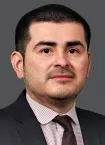Nearshoring is expected to boom in Mexico.1 COVID-19, the Ukraine war and geopolitical tensions around the world have led to a global trend of companies moving their production and supply lines closer to their end markets, also known as "nearshoring." With its extensive border with the United States, its proximity to Canada, its membership in NAFTA, and its large, young and educated workforce, Mexico stands to be one of the leading beneficiaries of nearshoring. As a result, foreign direct investment ("FDI") from both the private and public sectors is expected to grow in Mexico as nearshoring continues to unfold.2
Alternative Investment Structures
Fund sponsors looking to invest in Mexico have several investment structure options to capitalize on this growing trend. Generally, sponsors rely on parallel fund or master-feeder fund structures to source capital from a global and diverse investor base and deploy it, all in a cost- and tax-efficient manner. In Mexico, parallel fund structures are typically used to source capital from both inside and outside the country. In particular, fund sponsors targeting investments in Mexico have a few vehicle options for the onshore sleeve to source local capital. These options are based on the fund's intended liquidity terms and investment strategy and are mainly:
- CKDs (Certificados Bursátiles Fiduciarios de Desarrollo) are securities issued and publicly placed (i.e., listed on a Mexican stock exchange) by closed-ended investment vehicles designed for real estate, venture capital, growth and late-stage equity-style investments. CKDs are generally suitable for institutional investors but may also target retail investors.
- FIBRAs (Fideicomisos de Inversión en Bienes Raíces) are open-ended structuresdesignedfor real estate investments through the listing of CBFIs (Certificados Bursátiles Fiduciarios Inmobiliarios). FIBRAs are generally suitable for both retail and institutional investors.
- CERPIs (Certificados Bursátiles Fiduciarios de Proyectos de Inversión) are closed-ended structures similar to CKDs but with greater flexibility. However, CERPIs are only suitable for institutional investors (or other qualified persons). CERPIs have generally been used in the past as feeder funds to make investments outside of Mexico.3
- Private funds, generally set up in the form of Mexican trusts (fideicomiso), are generally used as co-investing vehicles alongside listed vehicles—CKDs, FIBRAs and CERPIs. Private funds have the benefit of being offered through private placements; thus, their corporate governance and reporting obligations are generally more investor-friendly compared to listed vehicles.
From a legal perspective, all of these listed local vehicles are trusts (fideicomisos), and their issuances are akin to capital market transactions in which the interests of the trusts are listed on a Mexican stock exchange—either the Bolsa Mexicana de Valores ("BMV")or the Bolsa Institucional de Valores ("BIVA"). Mexican pension funds (Administradoras de Fondos para el Retiro ("AFORES")) are the main institutional investors that purchase these interests.
Meanwhile, fund sponsors looking to invest in Mexico generally use limited partnerships for their offshore capital sourcing platforms. Ontario, Canada, is typically the jurisdiction of choice for these limited partnerships for a variety of reasons.
The challenge in raising both local and offshore capital is that limited partnerships and the local vehicles may be somewhat incompatible with each other. The parallel vehicles may also be denominated in different currencies. Furthermore, certain terms that are market for offshore vehicles (i.e., the US and Europe) may not be market for local Mexican vehicles (or vice versa). However, the opportunity to market the fund to a larger investor base may far outweigh these challenges. Additionally, fund complexes with a local investor basemay offer certain competitive advantages given their local knowledge and economic and political influence in Mexico, which may prove useful when executing the fund's investment strategy.
Governance
Local-listed Mexican vehicles (i.e., CERPIs, FIBRAs and CKDs) generally have strict governance structures set out by statute. Limited partnerships, such as Ontario limited partnerships, on the other hand, are generally quite flexible. The corporate governance of limited partnerships can be structured in a variety of ways without running afoul of applicable laws. For instance, certain general partner minimum liability-related provisions are prescribed by statute in Mexico. Additionally, CKDs, FIBRAs and CERPIs require a technical committee (comite técnico). Technical committees function like investment committees in offshore vehicles; however, unlike in limited partnerships, such committees are required by statute and are prescribed certain inalienable functions.
Given this difference, care and planning must be taken when agreeing to any governance term in an offshore vehicle that may be simply incompatible with a local vehicle.
Currency
A Mexican vehicle being denominated in pesos may present a set of challenges when drafting the governing documents for both the onshore and offshore platforms. For example, the distribution waterfall for the two parallel vehicles will be returning cash at different rates for investors because the preferred return rates, or hurdle rates, will be different. Local investors typically expect higher hurdle rates than their offshore counterparts because their capital contributions are made in pesos. Second, because drawdowns are generally based on investor commitments or available commitments, discrepancies may arise in the drawable amounts for each parallel vehicle if the exchange rates for the parallel vehicles diverge. For instance, if the US dollar appreciates over the Mexican peso, the drawable amount from the Mexican vehicle will be less than what was originally determined at the initial closing. Furthermore, to the extent the vehicles admit investors over a certain period of time after the initial closing, the difference in currencies and their corresponding fluctuations could create additional structural issues for fund sponsors when attempting to rebalance the entire fund complex following each closing or each investment. Therefore, mechanisms need to be put in place to address these issues or to at least disclose these issues to both investor bases to avoid misunderstandings.
Market Terms
In addition to facing governance and currency issues, market terms can be quite different between the offshore and onshore markets. For example, local investors generally expect rather simple investor-friendly indemnification terms; meanwhile, offshore investors expect rather broad indemnification provisions benefitting the sponsor given the relatively litigious environment in offshore jurisdictions. Another point of contention is expense caps. Local investors expect expense caps for the entire fund, while expense caps are not market in offshore vehicles. Lastly, to align interests, offshore investors typically expect fund sponsor commitments to be made within the same vehicle in which they are investing and not outside the fund. However, in Mexico, it is quite common for fund sponsors to make their commitments outside fund complexes.
Conclusion
These incompatibilities, among many others, require experienced counsel to assist fund sponsors in navigating these cross-border issues.
Footnotes
1. "Nearshoring set to boom in Mexico," (Login required), BNA Americas, July 13, 2022.
2. "IDB Joins Forces with Mexico to Promote Nearshoring," IDB, July 6, 2022. "Mexico's Industrial Hubs Grow as Part of Trade Shift Toward Nearshoring," The Wall Street Journal, February 1, 2023. "What's behind the Mexican wave of optimism?," Schroders, January 10, 2023.
3. CERPIs are permitted to use up to 90% of their raised capital to invest outside of Mexico.
Visit us at mayerbrown.com
Mayer Brown is a global legal services provider comprising legal practices that are separate entities (the "Mayer Brown Practices"). The Mayer Brown Practices are: Mayer Brown LLP and Mayer Brown Europe - Brussels LLP, both limited liability partnerships established in Illinois USA; Mayer Brown International LLP, a limited liability partnership incorporated in England and Wales (authorized and regulated by the Solicitors Regulation Authority and registered in England and Wales number OC 303359); Mayer Brown, a SELAS established in France; Mayer Brown JSM, a Hong Kong partnership and its associated entities in Asia; and Tauil & Chequer Advogados, a Brazilian law partnership with which Mayer Brown is associated. "Mayer Brown" and the Mayer Brown logo are the trademarks of the Mayer Brown Practices in their respective jurisdictions.
© Copyright 2020. The Mayer Brown Practices. All rights reserved.
This Mayer Brown article provides information and comments on legal issues and developments of interest. The foregoing is not a comprehensive treatment of the subject matter covered and is not intended to provide legal advice. Readers should seek specific legal advice before taking any action with respect to the matters discussed herein.


